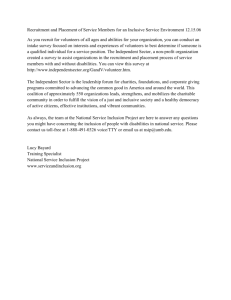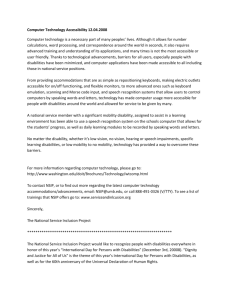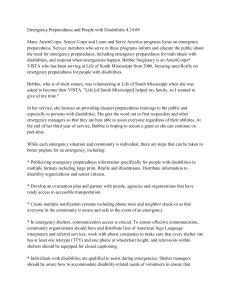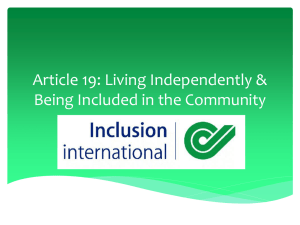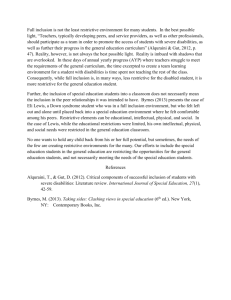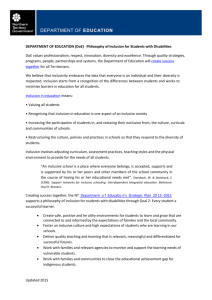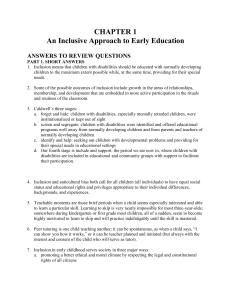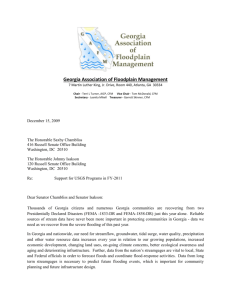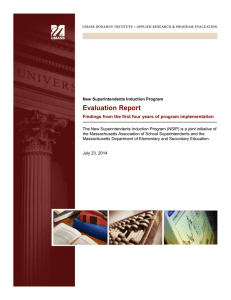Engaging Members & Children with Multiple Learning Styles in
advertisement
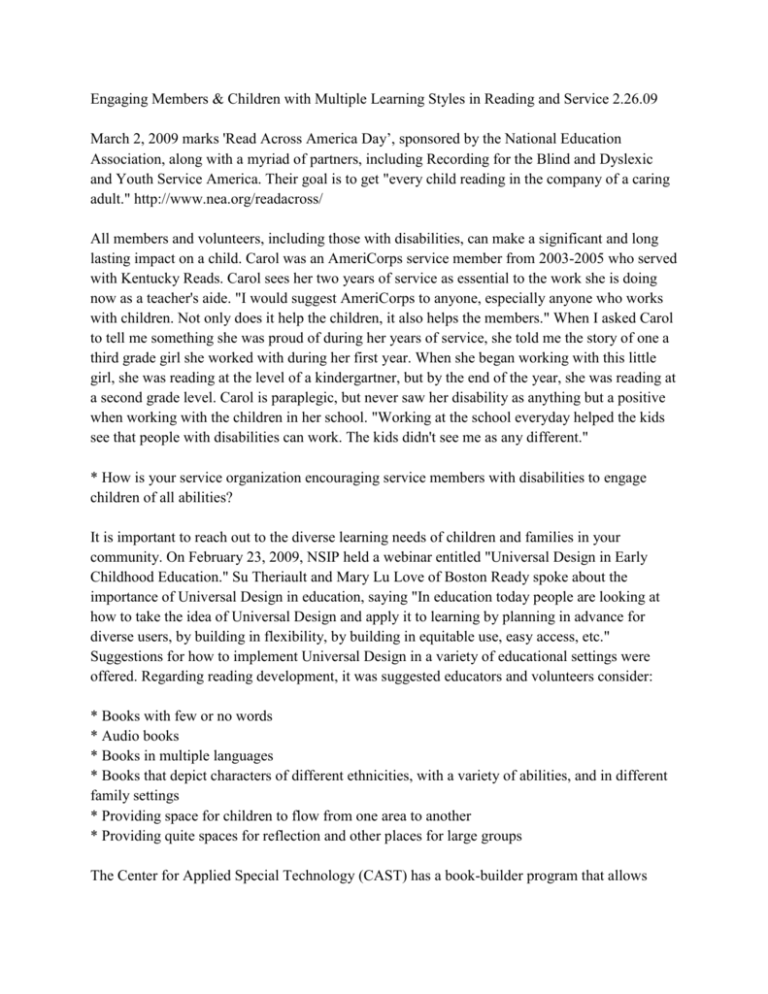
Engaging Members & Children with Multiple Learning Styles in Reading and Service 2.26.09 March 2, 2009 marks 'Read Across America Day’, sponsored by the National Education Association, along with a myriad of partners, including Recording for the Blind and Dyslexic and Youth Service America. Their goal is to get "every child reading in the company of a caring adult." http://www.nea.org/readacross/ All members and volunteers, including those with disabilities, can make a significant and long lasting impact on a child. Carol was an AmeriCorps service member from 2003-2005 who served with Kentucky Reads. Carol sees her two years of service as essential to the work she is doing now as a teacher's aide. "I would suggest AmeriCorps to anyone, especially anyone who works with children. Not only does it help the children, it also helps the members." When I asked Carol to tell me something she was proud of during her years of service, she told me the story of one a third grade girl she worked with during her first year. When she began working with this little girl, she was reading at the level of a kindergartner, but by the end of the year, she was reading at a second grade level. Carol is paraplegic, but never saw her disability as anything but a positive when working with the children in her school. "Working at the school everyday helped the kids see that people with disabilities can work. The kids didn't see me as any different." * How is your service organization encouraging service members with disabilities to engage children of all abilities? It is important to reach out to the diverse learning needs of children and families in your community. On February 23, 2009, NSIP held a webinar entitled "Universal Design in Early Childhood Education." Su Theriault and Mary Lu Love of Boston Ready spoke about the importance of Universal Design in education, saying "In education today people are looking at how to take the idea of Universal Design and apply it to learning by planning in advance for diverse users, by building in flexibility, by building in equitable use, easy access, etc." Suggestions for how to implement Universal Design in a variety of educational settings were offered. Regarding reading development, it was suggested educators and volunteers consider: * Books with few or no words * Audio books * Books in multiple languages * Books that depict characters of different ethnicities, with a variety of abilities, and in different family settings * Providing space for children to flow from one area to another * Providing quite spaces for reflection and other places for large groups The Center for Applied Special Technology (CAST) has a book-builder program that allows users to create, read, and share digital books that build student's reading skills. "Your universally designed books will engage and support diverse learners according to their individual needs, interests, and skills." Make your own at: http://bookbuilder.cast.org/ http://www.cast.org/ * How has your organization applied Universal Design principals to engage people of different abilities and multiple learning styles? Please share your experience so that we all can learn. Send responses to Sarah Kaplan at sarah.kaplan@umb.edu and they will be compiled for a future Inclusion Weekly. Visit: http://serviceandinclusion.org/index.php?page=conf_archive for a transcript and archive of "Universal Design in Early Childhood Education" or any other NSIP webinar. We always look forward to serving you! Please feel free to contact us with any disability inclusion questions and requests for information at NSIP@umb.edu or 888-491-0326 (V/TTY). Visit http://www.serviceandinclusion.org/index.php?page=request for a list of trainings offered by NSIP. Yours in Service, Sarah Kaplan Training Associate National Service Inclusion Project www.serviceandinclusion.org The National Service Inclusion Project is a cooperative agreement (08TAHMA001) between the Corporation for National and Community Service and the Institute for Community Inclusion at UMass Boston in collaboration with the Association of University Centers on Disabilities, Association on Higher Education and Disability, National Council on Independent Living and National Down Syndrome Congress. Information contained in this email is for informational purposes only and does not imply endorsement from the National Service Inclusion Project or the Corporation for National and Community Service.
